Dr Lowitja O’Donoghue AC CBE DSG
Dr Lowitja O’Donoghue, a Yankunytjatjara woman, was born in 1932 at De Rose Hill, in the remote north-west corner of South Australia. She was removed from her mother at the age of two, along with two of her older sisters. Dr O’Donoghue and her siblings were survivors of a harrowing time in Australia’s history when Aboriginal children were being removed from their families.
The sisters were taken to a church mission home, Colebrook Children’s Home in the town of Quorn in the Flinders Ranges, where they were reunited with their eldest sister and only brother who had been taken to the home seven years earlier. Lowitja was given the name Lois, a birth date and a birthplace and did not see her mother again for more than 30 years. The children were not allowed to speak their own language or to ask questions about their origins, or even about their parents.
Working in health
Employed as a domestic servant at the age of 16 years old, Dr O’Donoghue was encouraged to work as a nursing aide at the Victor Harbor Hospital. When she applied to complete her nursing training at the Royal Adelaide Hospital, she was refused the opportunity because of her Aboriginal heritage. In the stoic fashion for which she would come to be known, Dr O’Donoghue fought the decision, which included personally seeking support from the then South Australian Premier of the day, Sir Thomas Playford. The decision was eventually overturned and in 1954, she became the first Aboriginal person to train as a nurse at the Royal Adelaide Hospital.
After completing her training, she worked at the Royal Adelaide Hospital eventually progressing to the position of Charge Sister despite ongoing experiences of racism and remained working there for ten years.
During the 1960s, Dr O’Donoghue travelled to India to nurse with the Baptist Overseas Mission, gaining a broader perspective on Indigenous cultures worldwide and cementing her determination to fight for the rights of Indigenous peoples. She campaigned for the recognition of Aboriginal peoples in the 1967 Referendum, and later joined the South Australian branch of the Federal Office of Aboriginal Affairs.
Dr O’Donoghue accepted a position in the remote South Australian town of Coober Pedy where an Aunt and Uncle, noticing the family resemblance, recognised her at a local supermarket. Through this chance meeting, she was eventually reunited with her mother, Lily, who by this time was living in the nearby town of Oodnadatta.
Upholding Aboriginal rights
From 1970–1972, Dr O’Donoghue was a member of the Aboriginal Legal Rights Movement and was soon appointed to the position of Regional Director of the SA Department of Aboriginal Affairs, making her responsible for the local implementation of national Aboriginal welfare policy. She was the first woman to hold such a position in a federal department.
Breaking new ground for Indigenous women at the national level, in 1977 Dr O’Donoghue was appointed the founding chairperson of the National Aboriginal Conference. Building on her passion and growing expertise, she continued to take on senior leadership roles and positions among prominent agencies in Aboriginal affairs.
In March 1990, Dr O’Donoghue was appointed the inaugural chairperson of ATSIC – the Aboriginal and Torres Strait Islander Commission – and won universal admiration for her leadership, tenacity and integrity. A highlight was her pivotal role in the tense and complex negotiations that enabled the creation and passing of Prime Minister Keating’s Native Title legislation that rose from the High Court’s historic Mabo decision. In 1992, Dr O’Donoghue was the first Aboriginal person to address the United Nations General Assembly, during the launch of the United Nations International Year of Indigenous People.
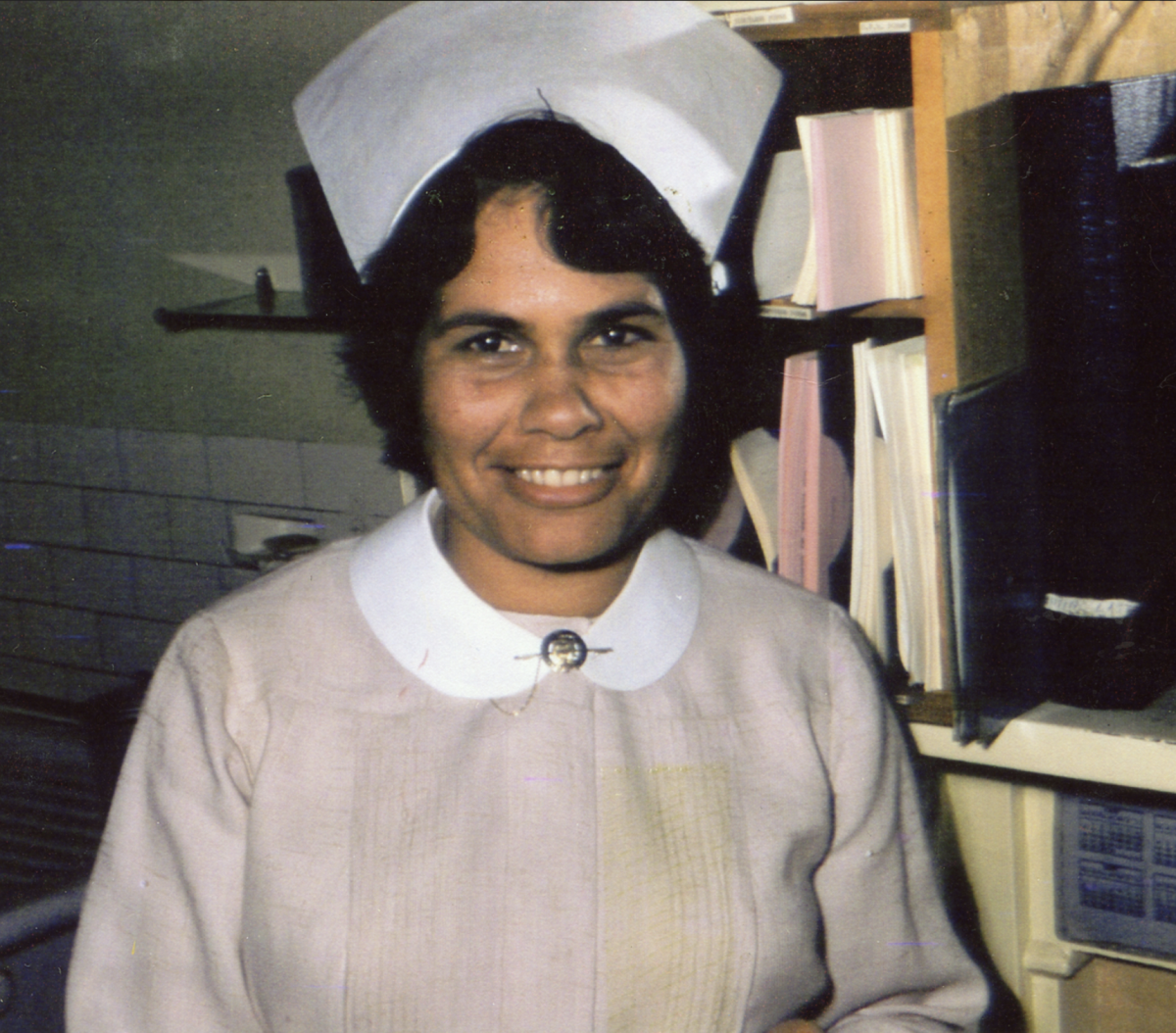

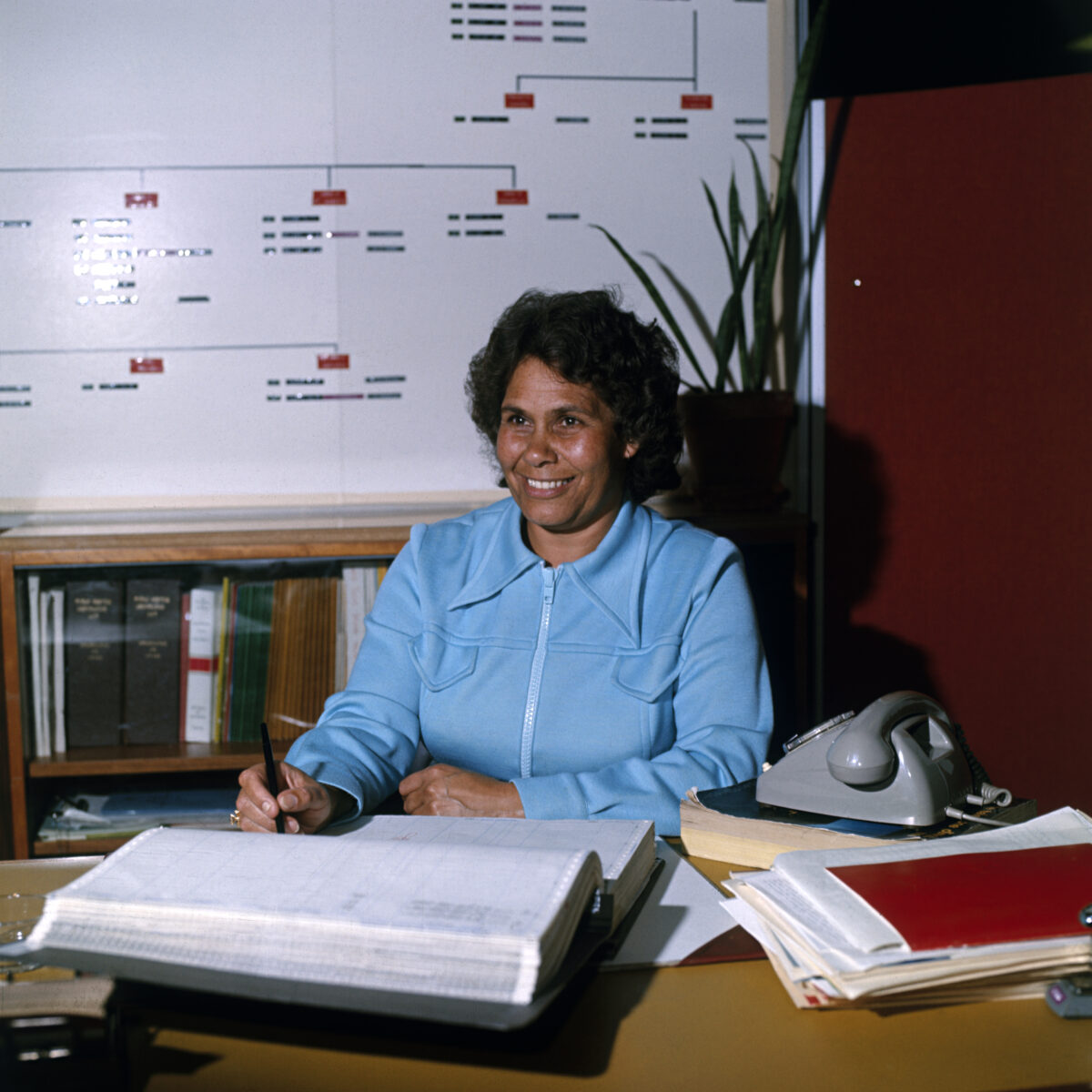
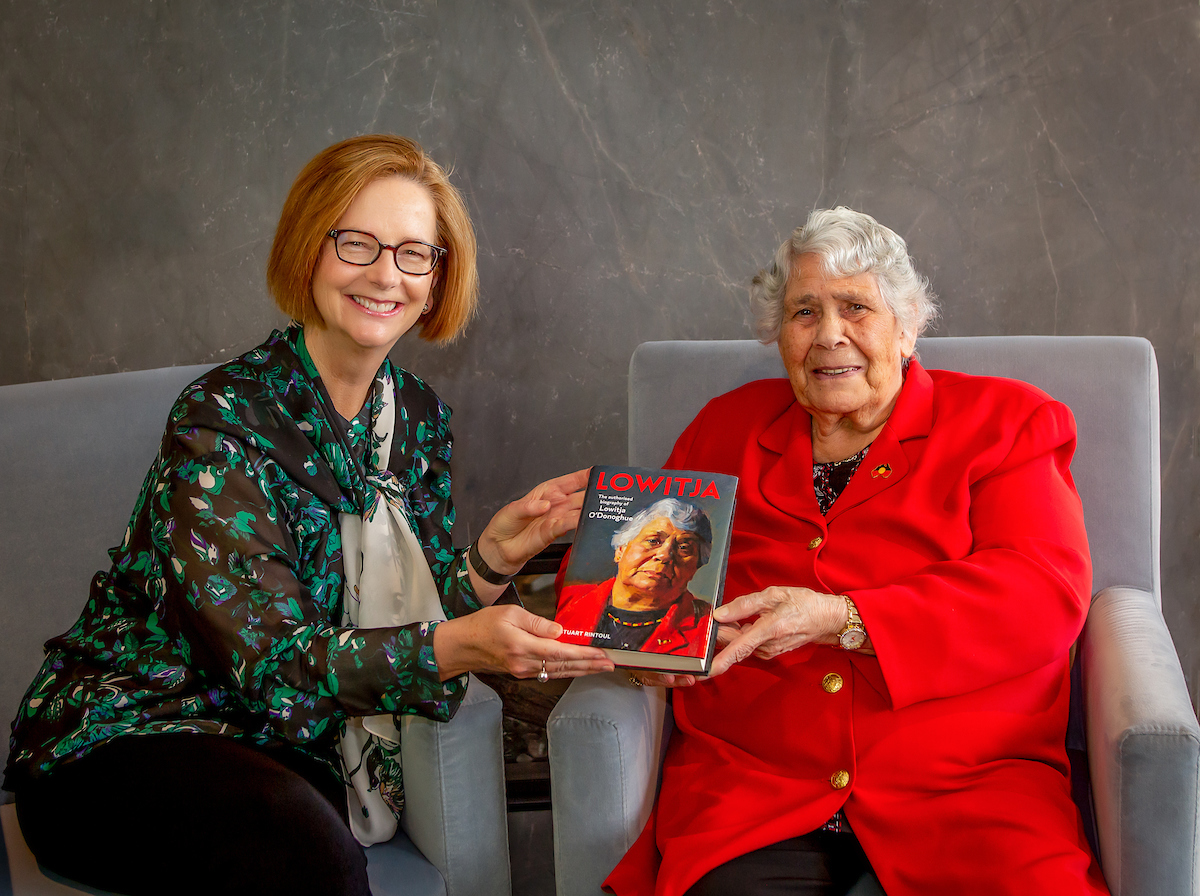
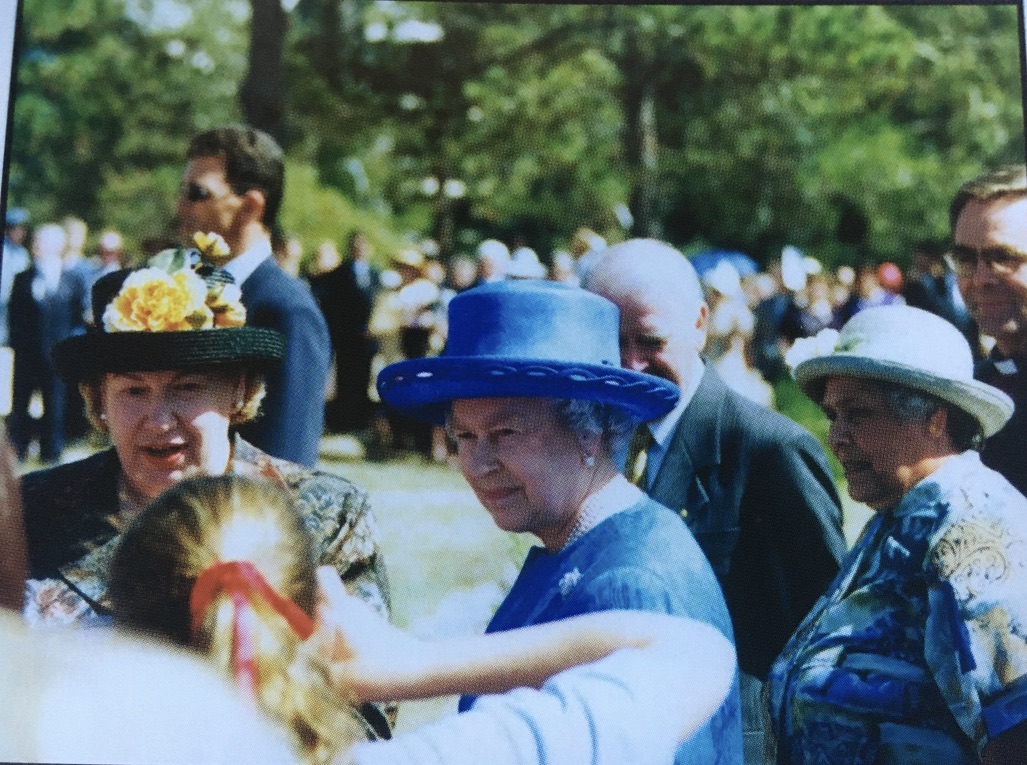
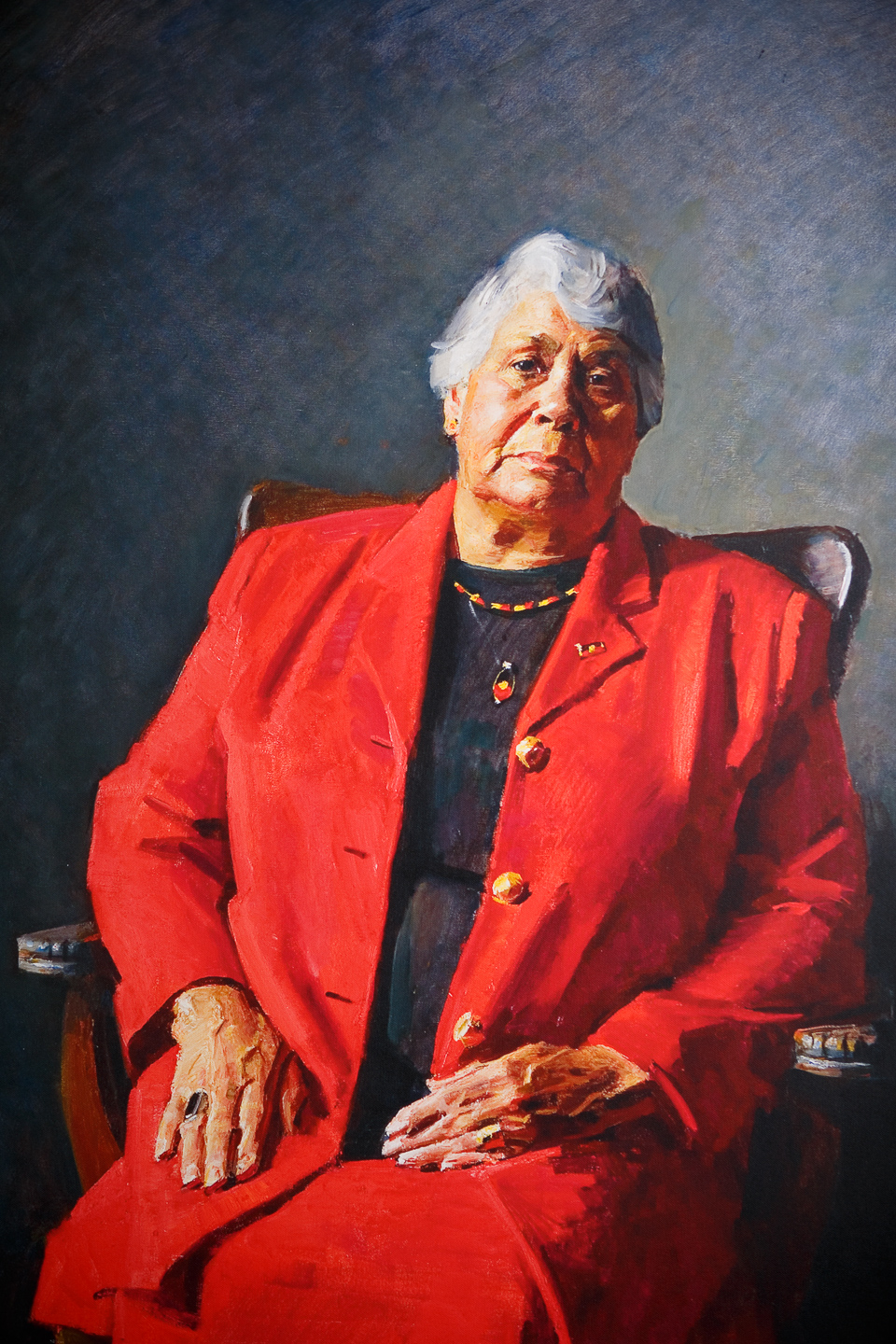
The birth of Lowitja Institute
When Dr O’Donoghue stepped down as chair of ATSIC in 1996, she became the inaugural Chair of the Cooperative Research Centre for Aboriginal and Tropical Health (1996–2003), which led to the CRC for Aboriginal Health (2003–09), the CRC for Aboriginal and Torres Strait Islander Health, and the Lowitja Institute Aboriginal and Torres Strait Islander Health CRC (2014–2019).
‘Lowitja Institute’, named in honour of its Patron Dr O’Donoghue, was established in January 2010, and became a cooperative research centre (CRC).
National and international awards
In 2000, Dr O’Donoghue played a critical advisory role leading up to the Sydney Olympic Games as Chairperson of the Sydney Olympic Games National Indigenous Advisory Committee and a member of the Sydney Olympic Games Volunteers Committee. She also very proudly carried the torch through Uluru during the Australian leg of the relay.
Dr O’Donoghue was awarded numerous honours in recognition of her contribution to promoting Aboriginal rights, including Membership of the Order of Australia in 1977 (the first Aboriginal woman to become so); Australian of the Year in 1984; Australian National Living Treasure in 1998; a Papal honour from Pope John Paul II and investiture as a Dame of the Order of St. Gregory the Great in 2006, and the NAIDOC Lifetime Achievement Award in 2009. She was also invested as a Commander of the Order of the British Empire in 1983, a Companion of the Order of Australia in 1999, and has received an extraordinary list of honorary doctorates from universities around Australia, the most recent received from the University of Adelaide in 2021.
Taking pride of place amongst the honours is the Honorary Fellowship awarded to Dr O’Donoghue by the Royal College of Nursing Australia in 1995, and the Honorary Fellowship from the Royal Australasian College of Physicians in 1998.
After a lifetime of advocacy and resistance, Dr O’Donoghue continued to promote Aboriginal and Torres Strait Islander rights, and champion human rights for all. As patron of many health, welfare, and social justice organisations, including Reconciliation South Australia, the Bob Hawke Prime Ministerial Centre, the Don Dunstan Foundation, and CATSINaM (Congress of Aboriginal and Torres Strait Islander Nurses and Midwives); and as co-patron of Lowitja Institute – her legacy lives on.
In 2007, the Don Dunstan Foundation established the annual Lowitja O’Donoghue Oration held at the University of Adelaide, with Dr O’Donoghue herself delivering the very first oration.
The authorised biography Lowitja, by author Stuart Rintoul, was published in September 2020.
Dr O’Donoghue retired from public life in 2008. She celebrated her 91st birthday on 1 August 2023.
Dr Lowitja O’Donoghue AC CBE DSG, Yankunytjatjara woman, died peacefully aged 91 on 4 February 2024.
